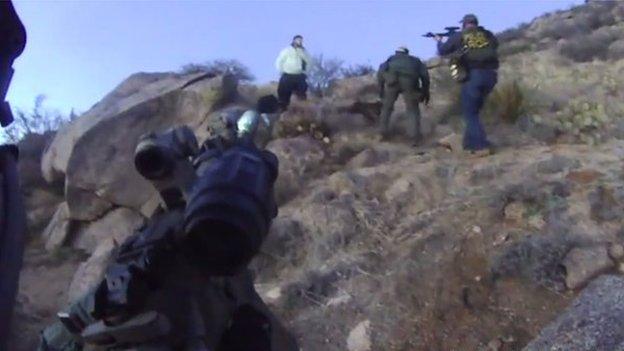Ferguson: Four other US police forces under scrutiny
- Published
Last week, the US Department of Justice alleged racial bias by Ferguson police, but there are more than 20 law enforcement agencies across the country under investigation for alleged abuses. So where are these other Fergusons?
National attention has been given to the report that alleged that black people were treated more harshly than others by the police force and local court in Ferguson.
But the Justice Department has found similar kinds of abuse at law enforcement agencies across the US in recent years.

Albuquerque, New Mexico
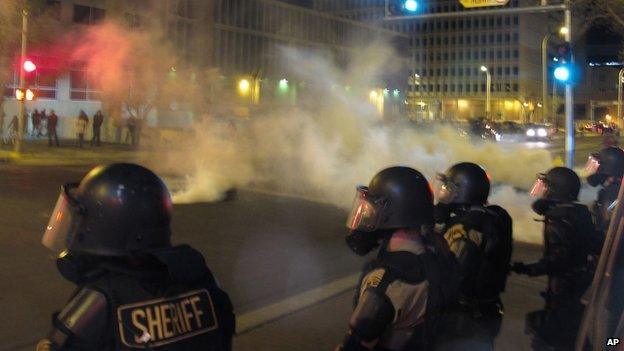
Following a spate of shootings, the Department of Justice said in November of 2012 that it would begin investigating the Albuquerque police force.
Since 2010, there were at least 41 police shootings, which resulted in 27 deaths. The shooting of a mentally ill homeless man in March 2014 was captured on video and led to protests which were sometimes violent. Ultimately the FBI and local authorities launched an inquiry into the incident, and two officers were charged with murder in January.
In April of last year, the Department of Justice accused the department, which polices New Mexico's most populous city, of routinely using excessive force against people who posed little threat, or were only passively resisting. It said officers were rarely punished for punching, kicking, and violently restraining offenders.
It also said that officers used more force than was necessary on people with mental illness or who were unable to comply with commands.
Later that year, the department agreed to a number of reforms aimed at reducing the use of force. Its officers were also required to start wearing body cameras more frequently and undergo training for dealing with people who are mentally ill.

Alamance County, North Carolina
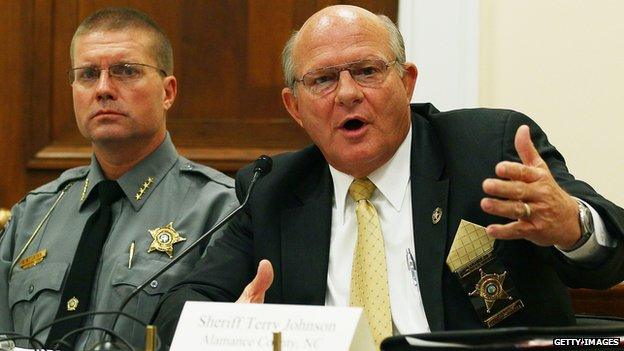
"Go out there and catch me some Mexicans," was the command that Alamance County Sheriff Terry Johnson reportedly gave his deputies.
The Justice Department alleges that the sheriff has targeted Latinos illegally, by setting up roadblocks in predominantly Latino neighbourhoods and by arresting Latino residents without probable cause.
Investigators claim that Latino drivers were up to 10 times more likely to be stopped for a traffic violation than other drivers in this small North Carolina county.
Sheriff Johnson's lawyer has denied the charges.
Unlike many other agencies that have been the subject of federal investigations, the Alamance County Sheriff's office rejected the Justice Department's offer to enter into a court-enforceable agreement that would force reforms.
In response, the department is suing the sheriff's office, in a case that has yet to be resolved.
"Unlike most municipalities, they are really fighting back against the attempted DOJ intervention," says Stephen Rushin, a University of Illinois Law School professor who specialises in police misconduct.
"This hasn't really happened before. It raises an important and unanswered question. Can the DoJ overhaul an agency that adamantly opposes federal intervention?"

Newark, New Jersey
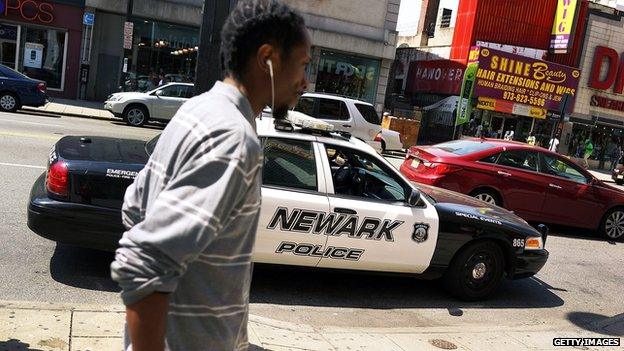
Unlike Alamance County, the Newark Police Department quickly co-operated with federal investigators after a damning Justice Department report said it had engaged in "a pattern and practice of unconstitutional policing".
Last summer, the Department of Justice announced the results of a three-year probe and said the police force could not provide a reason to justify stopping people in 75% of cases, and that it disproportionately targeted black people - even when accounting for their representation in the city's population.
It also found that officers had a "pattern or practice of theft of citizens' property," and had a habit of using excessive force.
Officers were also accused of arresting or detaining people they believed were disrespectful, which violated citizens' right to protest.
Officials in Newark immediately agreed to a number of reforms, which would be overseen by an independent monitor.

New Orleans, Louisiana
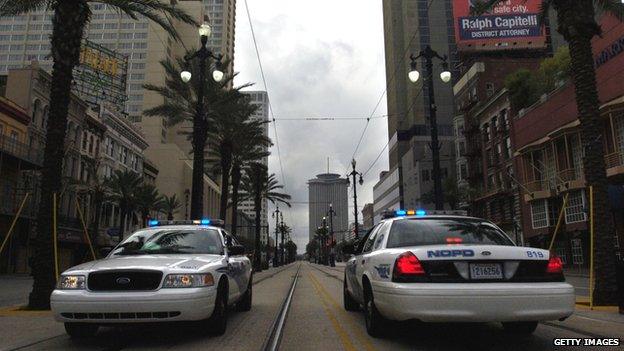
Days after taking office in May of 2010 as the mayor of New Orleans, Mitch Landrieu sent a letter to the Department of Justice requesting that it investigate the city's scandal-plagued police department.
The department was under pressure after a string of police shootings in the aftermath of Hurricane Katrina. In the letter, external published on the Times-Picayune newspaper's website, the mayor said some officers had been implicated in violent crimes including rape.
A year later in March 2011, the Justice Department released a report that said officers had engaged in racial bias, routinely used excessive force without sufficient reason to do so, and regularly made unconstitutional arrests.
In January 2013 - nearly three years after the mayor first asked for the federal government's intervention - a prior agreement between the city and the Department of Justice was approved by a judge.
The agreement compelled the police force to reform its policies pertaining to the use of force, interrogations, training, and searches and arrests, as well as recruitment and supervision.

A snapshot nationwide
in the past 20 years, the Justice Department has launched at least 65 investigations
32 have led to agreements to reform
there are 18,000 law enforcement agencies nationwide.
five investigations in last five years have found no evidence of wrongdoing
Source: Stephen Rushin, University of Illinois Law School
- Published12 March 2015
- Published12 March 2015

- Published12 January 2015
